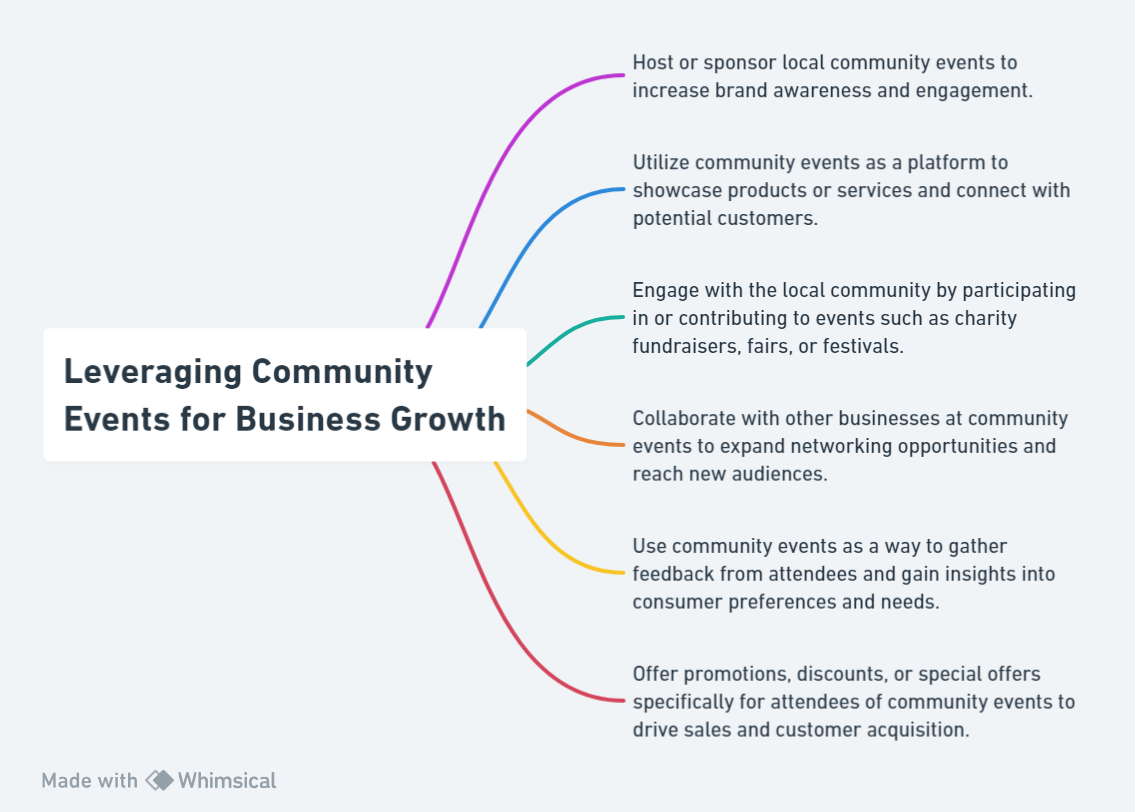In today’s digital age, it’s easy to overlook the power of offline referral marketing. However, word-of-mouth referrals remain one of the most effective ways to attract new customers and grow your business. This article explores the strategies and techniques of offline referral marketing, empowering you to harness the potential of personal recommendations.
Introduction to Offline Referral Marketing

In today’s digital-centric world, the power and potential of offline referral marketing often go unnoticed. Yet, this traditional form of marketing remains one of the most effective and personal ways to grow a business. Offline referral marketing taps into the most ancient form of trust-building—word-of-mouth—and leverages it in a way that builds community, loyalty, and, ultimately, sales.
1. Understanding Offline Referral Marketing
Offline referral marketing is the strategy of encouraging your satisfied customers to refer your business to their friends, family, and colleagues in their offline interactions. Unlike online referral programs, which rely on digital tools and platforms, offline referrals are all about personal recommendations made in real-life situations. This could be a casual conversation between friends over coffee, a recommendation made during a networking event, or even a mention of a product or service during a family gathering.
2. The Importance of Offline Referral Marketing
Why does offline referral marketing matter so much? First and foremost, it’s about trust. People trust recommendations from people they know far more than any advertisement or online review. This trust translates into higher conversion rates, as referrals come with a pre-established level of credibility. Furthermore, offline referrals often have a ripple effect, with one referral leading to another, creating a network of word-of-mouth marketing that can significantly increase a business’s visibility and customer base.
3. The Benefits of Offline Referral Marketing
The benefits of offline referral marketing are manifold. It’s cost-effective, relying on the organic spread of information rather than paid advertising. It builds a loyal customer base, as customers who refer others are more likely to continue using your services. Additionally, it often results in better customer matches, as people tend to know the preferences and needs of their network, leading to referrals that are more likely to be satisfied with your product or service.
4. Getting Started with Offline Referral Marketing
Embarking on an offline referral marketing strategy requires a focus on customer satisfaction and engagement. Businesses must provide exceptional products or services that people want to talk about. Furthermore, encouraging offline referrals can be as simple as asking satisfied customers to spread the word or as elaborate as creating a formal referral program with incentives for both the referrer and the referred.
Boost Your Brand with Online Referral Marketing in 2024
Strategies for Enhancing Word-of-Mouth Referrals

Offline referral marketing remains a cornerstone of building and expanding business reach, relying heavily on one of the oldest forms of trust-building: word-of-mouth referrals. In today’s digital age, the significance of personal recommendations through offline channels cannot be overstated. Here are key strategies to maximize word-of-mouth referrals, ensuring your offline referral marketing efforts yield substantial results.
1. Create Memorable Customer Experiences
The foundation of effective offline referral marketing is the creation of memorable customer experiences. When customers encounter exceptional service or receive a product that exceeds their expectations, they’re naturally inclined to share their experiences with others. Investing in training for staff to deliver outstanding customer service and ensuring your product quality is top-notch can turn your customers into enthusiastic advocates.
2. Leverage Influential Community Members
Identify and engage with influential members within your community who have a strong network and can act as brand ambassadors. Offline referral marketing thrives when influential individuals share their genuine experiences with your brand. Offering them exclusive previews, discounts, or other incentives can encourage them to spread the word about your business more effectively.
3. Develop a Referral Program
Implementing a structured referral program can significantly enhance your offline referral marketing strategy. Offer rewards or incentives for customers who refer new clients to your business. This not only shows appreciation for their referral but also motivates them to continue advocating for your brand. Ensure the process is simple and the rewards desirable to maximize participation.
4. Host Community Events
Hosting events in your local community can boost your offline referral marketing efforts by providing a platform for direct interaction with potential and existing customers. Events create an opportunity for guests to experience your brand firsthand and encourage word-of-mouth sharing among attendees. From open houses to workshops or sponsorships of local sports teams, events can vary in scale but should always aim to create a positive impression of your brand.
Scaling Your Business with Marketing Referral Software 2024
Leveraging Community Events for Business Growth

Community events offer a valuable platform for businesses to connect with potential customers and generate referrals. By participating in local events, businesses can:
- Increase Visibility: Community events provide a highly visible opportunity to showcase your business and build brand awareness. By setting up a booth or sponsoring an event, you can reach a large audience of potential customers.
- Establish Relationships: Events provide an ideal setting to network with community members and build relationships. By engaging in conversations and offering value, you can create connections that can lead to future referrals.
- Generate Leads: Community events can be a great way to generate leads for your business. By offering incentives for attendees to sign up for your email list or provide their contact information, you can expand your reach and nurture potential customers.
To effectively leverage community events for offline referral marketing, consider the following strategies:
- Choose Relevant Events: Select events that align with your target audience and business goals. Consider the interests, demographics, and location of potential customers.
- Prepare Your Presence: Make sure your booth or sponsorship is well-designed and engaging. Provide valuable information, offer incentives, and have staff available to answer questions and build relationships.
- Follow-Up: After the event, follow up with attendees who expressed interest in your business. Send them personalized emails, offer exclusive promotions, and invite them to connect on social media.
By leveraging community events effectively, businesses can generate valuable referrals, build relationships, and increase their visibility. This offline referral marketing strategy can help drive business growth and foster long-term success.
Lawyer Referral Marketing: Maximizing Word-of-Mouth in 2024
Measuring the Impact of Offline Referrals

Tracking the impact of offline referral marketing can be challenging, but it is essential for understanding the effectiveness of your efforts and optimizing your strategy. Here are some key metrics to consider:
- Number of Referrals: Keep track of the number of referrals you receive from offline sources, such as community events, networking, and word-of-mouth.
- Source of Referrals: Identify the specific sources of your referrals, such as specific events, individuals, or businesses. This information can help you focus your efforts on the most effective channels.
- Conversion Rate: Calculate the conversion rate of offline referrals into paying customers. This metric indicates the effectiveness of your follow-up and sales process.
- Customer Lifetime Value (CLTV): Determine the average CLTV of customers acquired through offline referrals. This metric measures the long-term profitability of your referral marketing efforts.
To measure the impact of offline referrals, consider the following strategies:
- Use Referral Tracking Software: Some software solutions can help you track the source of referrals and automate the follow-up process.
- Offer Referral Incentives: Encourage customers to refer their friends and family by offering incentives, such as discounts or loyalty rewards.
- Track Website Traffic: Use Google Analytics or other web analytics tools to track the traffic generated from offline referral sources. This can help you understand the impact of your efforts on website visits and conversions.
By measuring the impact of offline referrals, businesses can gain valuable insights into the effectiveness of their marketing efforts. This information can help them optimize their strategy, allocate resources more effectively, and maximize the return on investment from their offline referral marketing initiatives.
The Future of Internet Referral Marketing in 2024
Conclusion
Tracking offline referrals effectively involves integrating a few key strategies to ensure accurate measurement and attribution. First, use referral codes or custom referral cards that customers can hand out to friends and family, allowing you to track which customers are generating referrals. Secondly, implement a customer relationship management (CRM) system where you can log referrals manually as they come in through phone calls or in-person visits. Encourage your staff to always ask new customers how they heard about your business and record this information diligently.
How do I manually track a referral?
Manually tracking a referral involves a straightforward but meticulous process. First, create a referral tracking sheet or database, which can be as simple as a spreadsheet. Include columns for the referrer’s name, the referred person’s name, contact information, referral date, and the status of the referral (e.g., new, contacted, converted). When a referral is made, enter the information into your tracking system. Regularly update the status as the referral progresses through your sales or engagement process. For accuracy, encourage referrers to mention their name when they recommend your business and always ask new contacts how they heard about you. This method requires diligent record-keeping and follow-up to ensure each referral is accurately tracked and attributed.

